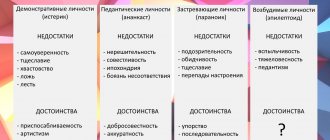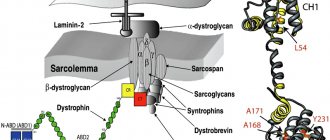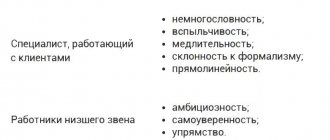Schizoid type
Like other premorbid personality types according to Lichko, it is characterized by an increased risk of transformation into psychopathy. Included in Lichko’s typology of character accentuations as a variant of the clinical norm. But often this accentuation turns into a personality disorder. Schizoids are characterized by a group of properties.
Closedness. As a rule, a schizoid is a modern hermit. People with such accentuation do not know how to build close relationships. Most often, they do not want to, since the characteristics of mental activity are directed inward to the individual. The external attributes of life, be it relationships, work, interest them much less. If you're interested at all.
Rich inner world. However, the schizoid does not allow anyone there. Occasionally, only the closest people - friends or partner - receive such an honor.
Reluctance to establish social contacts. It is not only inability, but also reluctance that makes a schizoid who he is. Patients of this kind are excellent at establishing distant, business-like relationships, where everything is defined by role. For example, a teacher-student or an employee-boss. In other, average and especially close relationships, serious problems arise.
Lack of empathy. People with schizoid character accentuation lack understanding of the emotions of others. They also do not understand hidden gestures and the hidden meaning of what is said. Therefore, problems arise in personal life and informal communication. A schizoid prefers to be told about everything directly, without hints.
Developed intelligence. Quite often, but not always. Allows you to work productively in a variety of fields, be it science or other types of activity. Schizoids often achieve success in the field of art and artistic activity.
Thinking outside the box.
Schizoids are rather closed people. However, they are distinguished by loyalty and devotion. Non-standard thinking and, as a rule, a high level of intelligence.
Psychasthenic
A defining personality trait is the tendency to introspect. However, this is not the only typical feature of psychasthenics. Among the features:
- Reflection. Increased tendency to understand oneself. In severe clinical cases, at a level close to psychopathy, we are talking about soul-searching. Self-flagellation and self-pity are also possible. Hence the reluctance to do anything and the loss of initiative. With proper character development, it is possible to overcome this trait and turn reflection into a development tool.
- Self-criticism. Reaching, as was said, to self-flagellation. Psychasthenics have a good memory, so they remember all their mistakes. The problem is that mistakes are often not as bad as the patient thinks. But he cannot accept them. Hence the false desire for perfection, pathological perfectionism.
- Diffidence. Before doing anything, such a patient thinks for a long time and does not act. In this case, prudence plays a negative role. For example, such patients think too long even under completely positive external conditions. Those who themselves tell you to act, not think.
- Fear of making a mistake. At the pathological level. A person will think for a long time, reflect, instead of doing. Often because of this, psychasthenics miss good opportunities in work and personal relationships.
- Fear of censure. Reluctance to criticize. Accompanied by a pathological fear of crowds. People of this type do not like and do not know how to speak in public. They may experience problems in their personal life, since it is always associated with some kind of evaluation. On a subconscious level, all these problems become obstacles to development.
- Reluctance to take responsibility even for one's own actions. The main negative feature of psychasthenics.
- Loyalty and reliability. Both in personal relationships and at work. Diligence and willingness to work for the common good are typical. Psychasthenics also do not forget about themselves.
- The real scourge of patients is low self-esteem. When a person does not believe in his own strength, he considers himself flawed and inferior.
Psychasthenics are faithful and devoted husbands and wives, valuable workers. The main study concerns self-doubt and pathological self-examination, reflection, which often turns out to be a brake on development. The problem should be worked through with a psychologist or, in advanced cases, with a psychotherapist.
Method of determination
To diagnose the type of personality accentuation, the K. Leonhard-S questionnaire is used. Shmishek . Consists of 10 scales and 88 questions.
The instructions are simple: you need to read the questions and quickly answer “yes” or “no”. The answers are counted using a special key, after which a graph of the severity of a particular accentuation is drawn up.
If there are brightly pointed accents, then we can talk about the presence of a certain accentuation of the personality.
Leonhard-Smishek test questionnaire: character accentuations.
Cycloid
In some respects, cycloids are similar to labile patients. However, the change in mood among the former is much more pronounced. In their development, mood and emotional background go through two phases:
- Hyperthymic. At this time the mood is elevated, even too high.
- In the second phase, subdepression is observed. Decreased emotional background.
In this respect, cycloid people are similar to patients with manic-depressive psychosis. But accentuation is not a disease. This is a premorbid state of personality. By the way, these patients are more likely to develop bipolar affective disorder. Although there is no 100% correlation.
Among the characteristic features of accentuation:
- Sudden mood changes. They may be perceived as characteristics of an unbalanced personality, which is actually not the case. Each phase, be it subdepression or hyperthymia, lasts for several weeks. Then they are replaced by reverse features.
- Excitability. Increased excitability is typical for the hyperthymic phase. A person at this time is active, energetic, ready to move mountains almost literally. Efficiency is off the charts.
- Friendliness and increased sociability in the hyperthymic phase. In this respect, the patient is similar to classic hyperthymic.
- Irritability. Develops against the background of the subdepressive stage of emotional development. At this time, it is better not to touch the person, since biased criticism and conflicts are possible.
- Aggressiveness. Depending on the type of character, it can turn into physical violence. Or, at a minimum, attempts to protect yourself from uncomfortable communication.
- Increased tearfulness.
The cycloid type is active in the hyperthymic phase. It is at this time that he is most active. In some cases, mood changes do not come for months.
Epileptoid
As the last type, the classification of character accentuations according to Lichko includes epileptoids. These are some of the toughest people. The description defines the following personality traits:
- Aggressiveness. Increased excitability. Such a person strives for everyone to always listen to him. So that the last word remains with him.
- Authoritarianism. Inability to take into account the opinions of others.
- The desire to subjugate everyone and everything.
- Pedantry. Scrupulousness, even to the point of pettiness.
- Inability to build close relationships due to aggressiveness and authoritarianism.
- In particularly difficult cases, we are talking about a tendency towards tyranny. The typical image of a domestic tyrant is an epileptoid.
An epileptoid can be described with the word “soldier”. This is true for both women and men with similar character accentuation. These are excellent workers. The role of a boss suits them best, especially with high intelligence. Often we are talking about natural leaders whom others are willing to follow.
Classification of character accentuations allows you to more accurately determine the personality type of a particular patient and work out tactics for correcting personality traits. A table of character accentuations according to Lichko is presented below.









